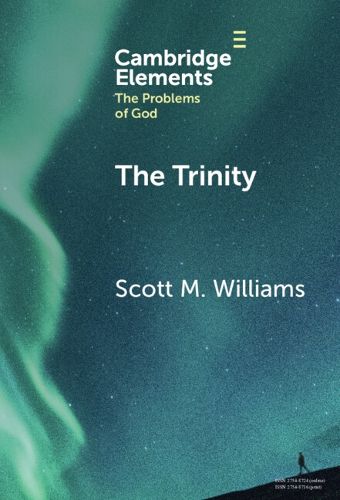Readings Newsletter
Become a Readings Member to make your shopping experience even easier.
Sign in or sign up for free!
You’re not far away from qualifying for FREE standard shipping within Australia
You’ve qualified for FREE standard shipping within Australia
The cart is loading…






The doctrine of the Trinity, proclaimed by Christians through the Nicene-Constantinople creed, is foundational to traditional Christian belief and worship of God. But is this doctrine logically coherent? How can there be three divine persons (Father, Son, and Holy Spirit), each is God, and yet there is only one God? This is a fundamental question for philosophers, but theologians have additional questions. This Element addresses philosophical and theological issues concerning the Trinity: Hermeneutical and Logical problems, Personal Pronouns, Monarchy, Equality, the Greek vs. Latin filioque debate, Real Relations, Unity of Action, Self-Knowledge in the Trinity, and Simplicity. Based on my recent rediscovery of the sixth ecumenical council's (Constantinople III) clarifications of Trinitarian doctrine, this Element introduces Conciliar Trinitarianism and shows how it responds to the issues, including a resolution to the fundamental logical question. It also compares Conciliar Trinitarianism with Miaphysite, neo-Sabellian, Social, and other models of the Trinity.
$9.00 standard shipping within Australia
FREE standard shipping within Australia for orders over $100.00
Express & International shipping calculated at checkout
The doctrine of the Trinity, proclaimed by Christians through the Nicene-Constantinople creed, is foundational to traditional Christian belief and worship of God. But is this doctrine logically coherent? How can there be three divine persons (Father, Son, and Holy Spirit), each is God, and yet there is only one God? This is a fundamental question for philosophers, but theologians have additional questions. This Element addresses philosophical and theological issues concerning the Trinity: Hermeneutical and Logical problems, Personal Pronouns, Monarchy, Equality, the Greek vs. Latin filioque debate, Real Relations, Unity of Action, Self-Knowledge in the Trinity, and Simplicity. Based on my recent rediscovery of the sixth ecumenical council's (Constantinople III) clarifications of Trinitarian doctrine, this Element introduces Conciliar Trinitarianism and shows how it responds to the issues, including a resolution to the fundamental logical question. It also compares Conciliar Trinitarianism with Miaphysite, neo-Sabellian, Social, and other models of the Trinity.